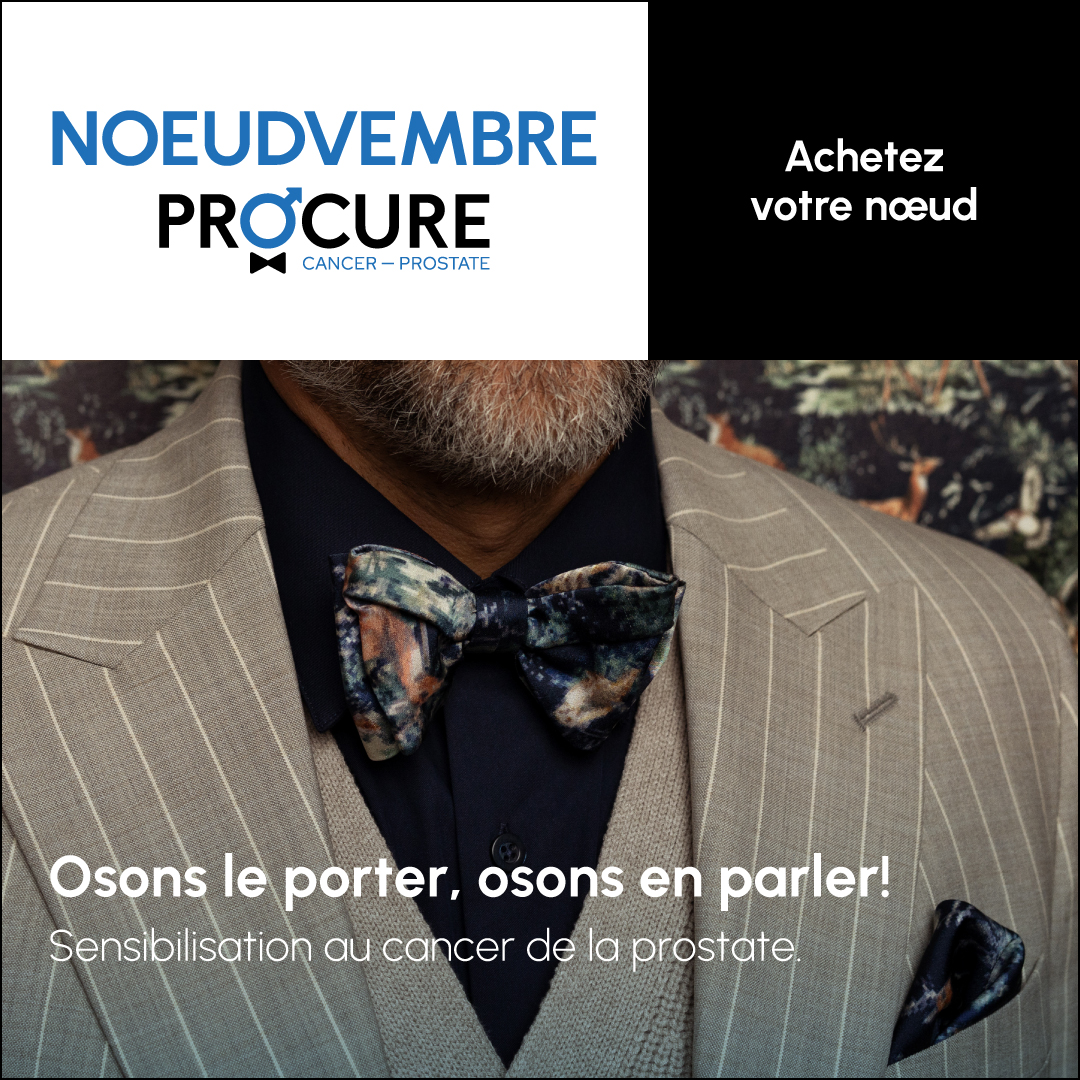Women of Courage
- Testimonials
- Women of Courage
- Testimonials from women
- For additional inspiration
Women of Courage
Here are testimonials written by women acting as caregivers for men affected by prostate cancer. You can send us your testimonial by writing to info@procure.ca.
Testimonials from women

Here’s my testimony as a woman, I hope it will encourage others.
We learned in October that my husband (58 years old) had a grade 7 cancer despite a PSA of 3.2. His doctor at Maisonneuve-Rosemont was super conscientious; given that my husband had the hereditary factor and his PSA was unstable, he didn’t take any chances and had him undergo a biopsy which turned out to be positive. We had no idea what was going to happen; for us, it was the unknown… Discover the rest by clicking here


In 1994, my father learned that he had prostate cancer. He was 65 years old, and I was 29. When I was told the news, I was overcome with anxiety. It seemed unbelievable to me. Just thinking about it scared me. At first, I didn’t really seek information about the disease, as if I feared admitting the truth. Nevertheless, from that moment on, prostate cancer diagnoses seemed to come from everywhere: my uncle (my father’s younger brother) also learned that he had the disease, and shortly after, I discovered that my new friend’s father had just undergone a radical prostatectomy… Discover the rest by clicking here

“It’s cancer, Ben, my husband, had said on my office voicemail. I’ll probably need surgery. The risk of temporary incontinence is 95%, and the risk of erectile dysfunction can be high, depending on the type of procedure. By having the surgery, I have an 85% chance of being cured.” My husband believed in honesty, but this time, he had outdone himself. Even though I’ve worked in the healthcare field for many years, nothing in my career had prepared me for the emotions that overwhelmed me… Discover the rest by clicking here

In recent years, I’ve embarked on a journey with my husband that has been both enlightening and educational. Together, we’ve navigated the various steps to take with specialists regarding his illness. They all arrived at the same conclusion: prevention.
Prevention is becoming increasingly important because it saves and prolongs lives. That’s what we’ve learned. We’ve also learned that together, we can do even more. We must lend a hand, share knowledge, and help others benefit from it to build a stronger, more educated community about the disease. We’re all part of the same community, the community of humankind, so let’s help each other strengthen and extend our lives together.
Wishing everyone a good life.
Read the testimonials written by men on prostate cancer.
Video testimonials
On our YouTube channel, you can watch testimonials told with kindness and candor by individuals affected by prostate cancer. We are very grateful to them. You can watch them by clicking here.
If you wish to do the same, don’t hesitate to contact us at info@procure.ca so we can guide you on producing your own video testimonial and how to send it to us.
Are you looking to make a difference?
Prostate cancer and the development of research tools to fight this cancer are causes close to your heart? Become a volunteer for PROCURE! With your help, we can increase our outreach to the public and raise awareness about this disease. To learn more, click here.
Other pages that might interest you
Additional Information - Testimonials
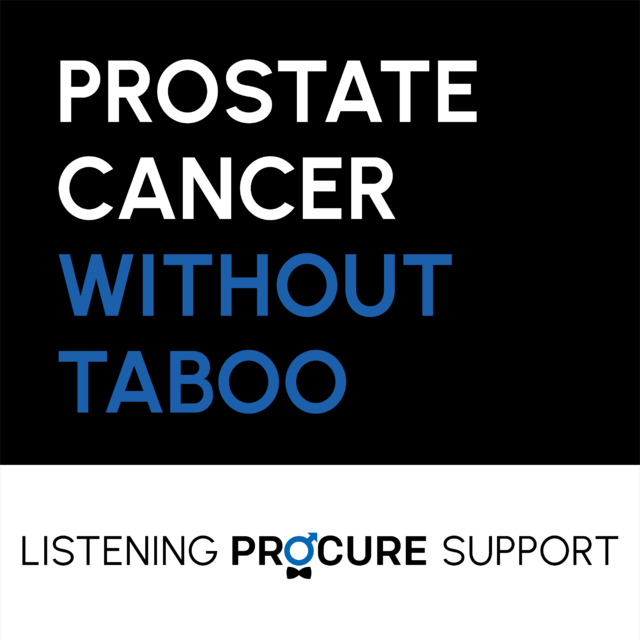
Urologist’s advice: Treatments and information on prostate cancer
Learn more about the role of the urologist and the importance for a patient to gather adequate information after receiving a prostate cancer diagnosis.
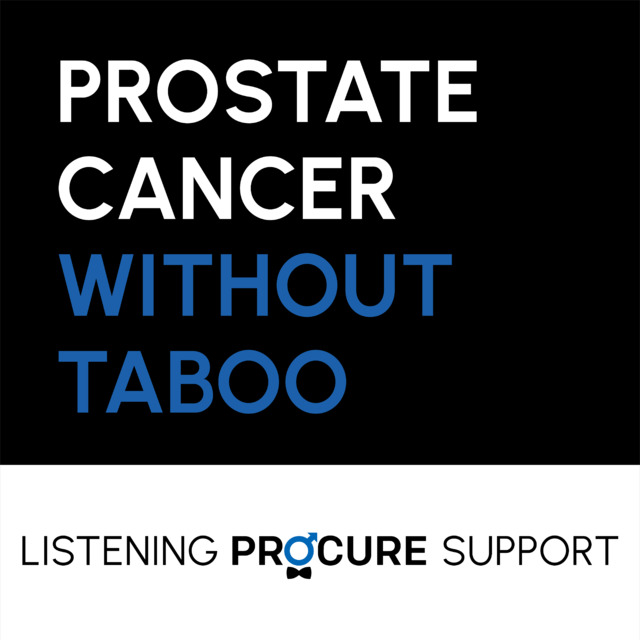
How I coped with prostate cancer
A man with prostate cancer shares the challenges of his cancer experience.
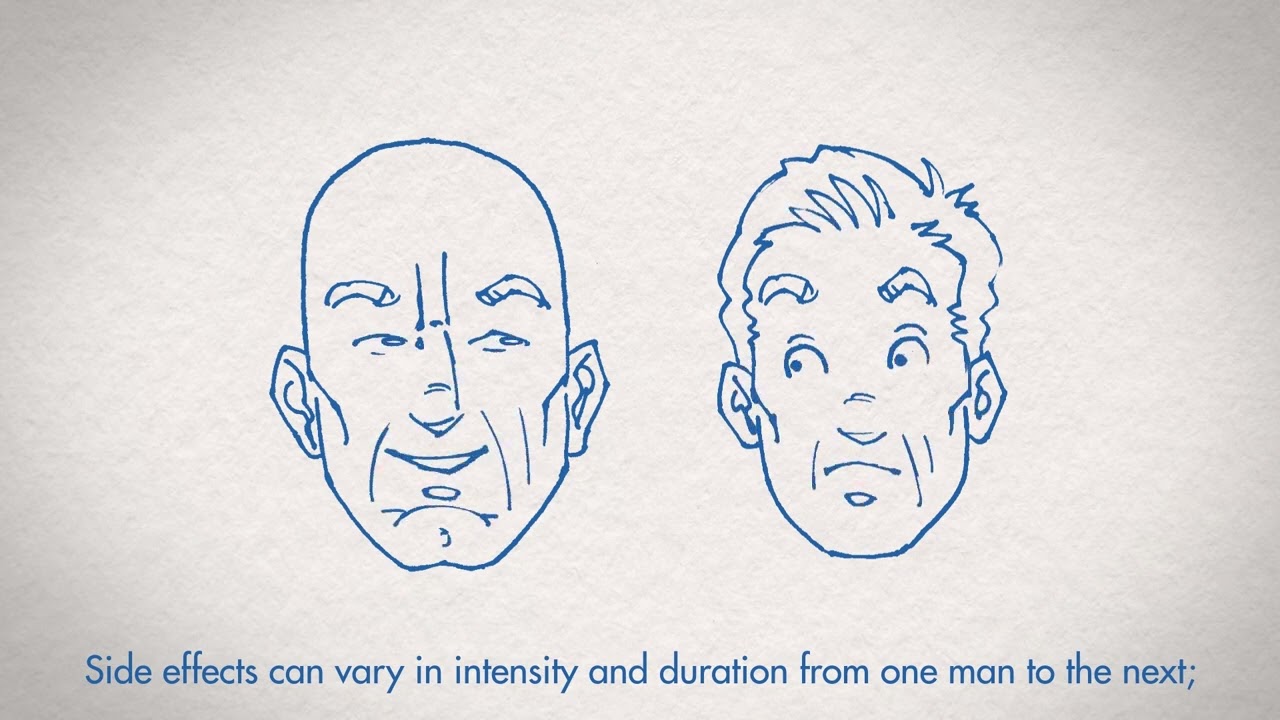
Your role as a patient
You’ve been diagnosed with prostate cancer? Your role is as important as that of your medical team.
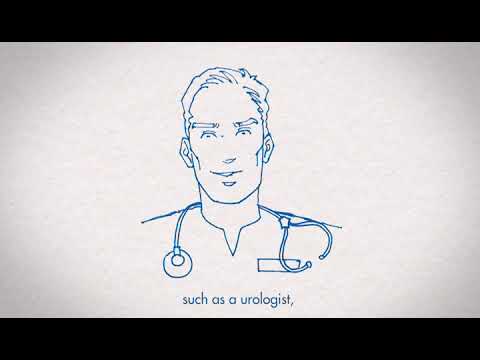
Diagnosis and treatment
Recently diagnosed with cancer? Educate yourself to fully understand your situation.
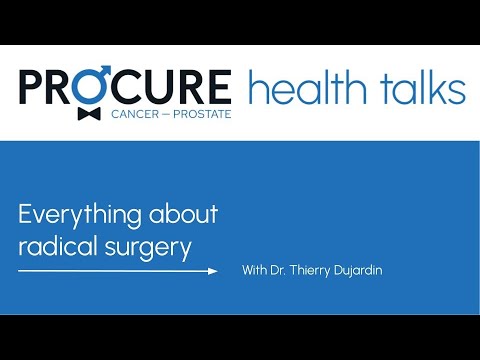
Everything to know about radical surgery
Considering radical surgery for your cancer treatment? Watch this webinar to learn about the procedure, its benefits, drawbacks, and suitability for you.
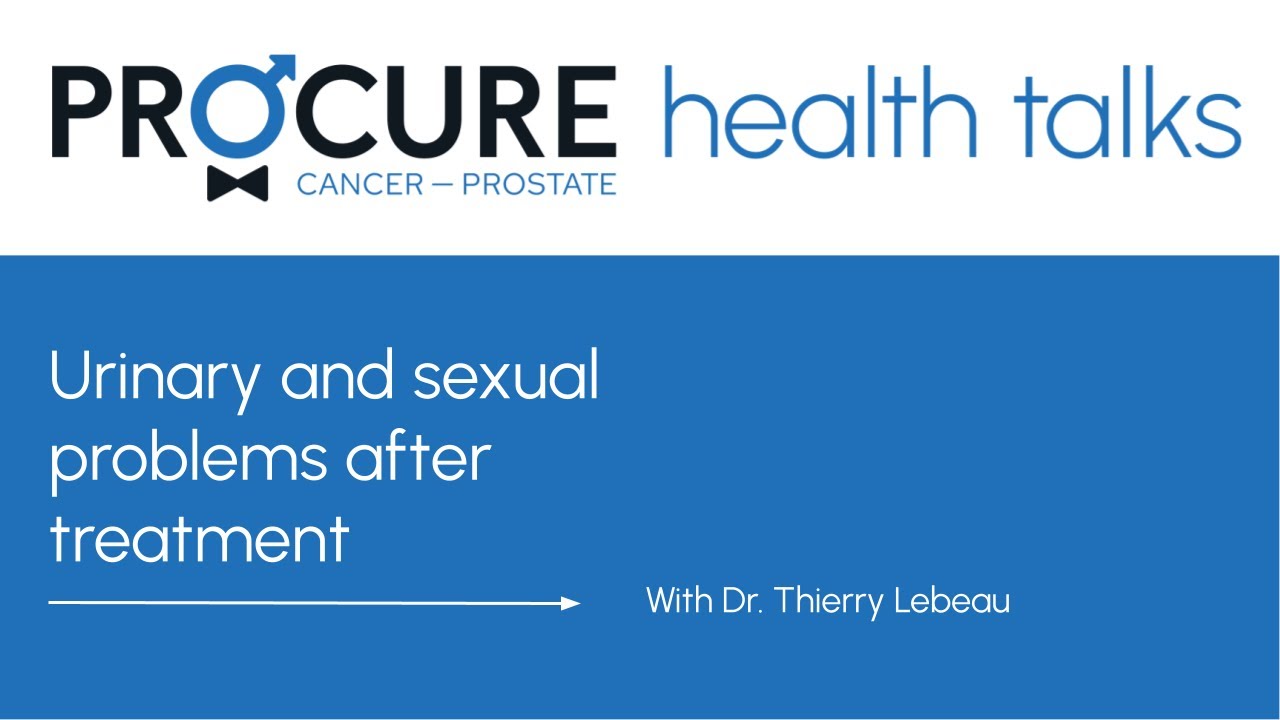
Urinary and sexual problems after treatment
Prostate cancer treatments can lead to side effects, such as erectile dysfunction and urinary incontinence, which vary in intensity and duration.
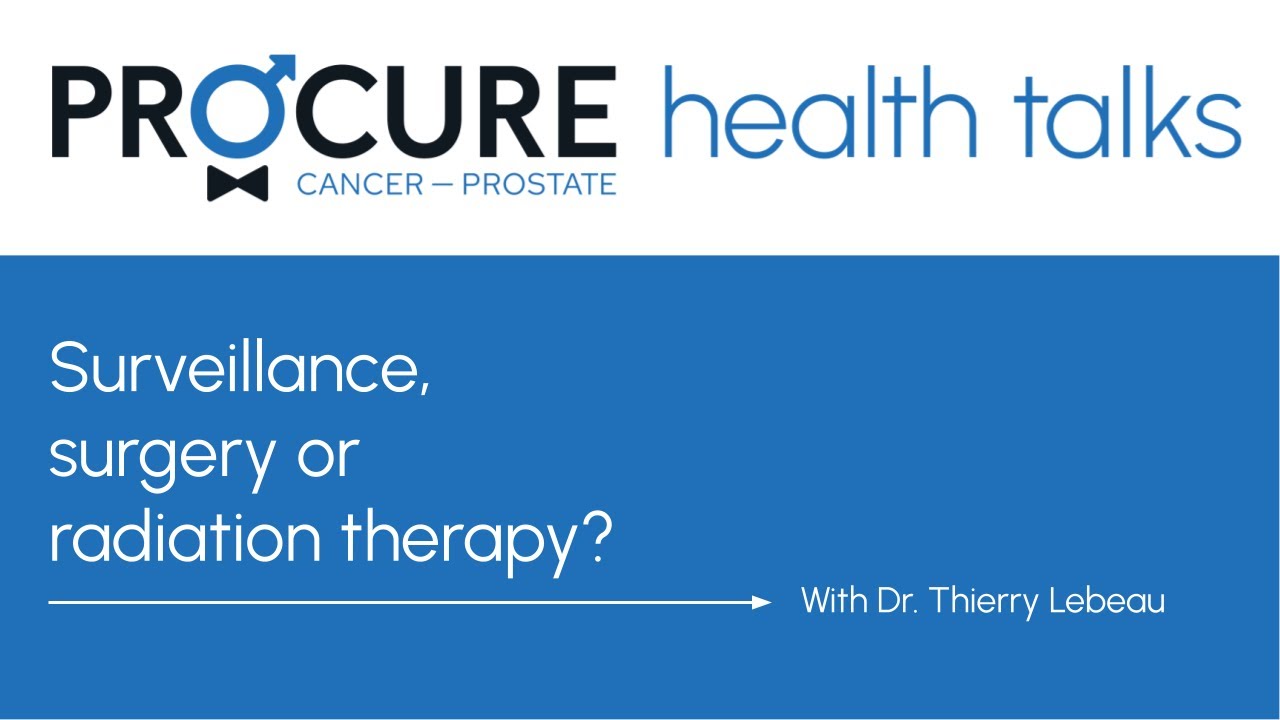
Surveillance, surgery or radiation therapy?
Diagnosed with prostate cancer? Several treatment options are available based on the stage, age, and your health.
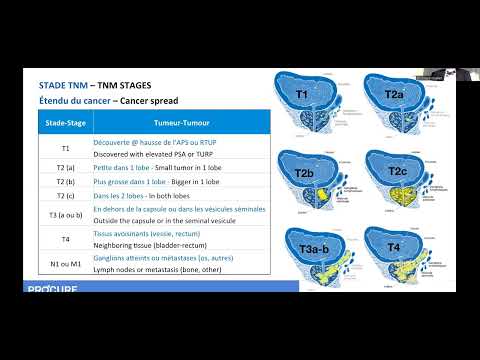
Active surveillance as a treatment option?
Did you know that in many cases it is not necessary to treat prostate cancer?
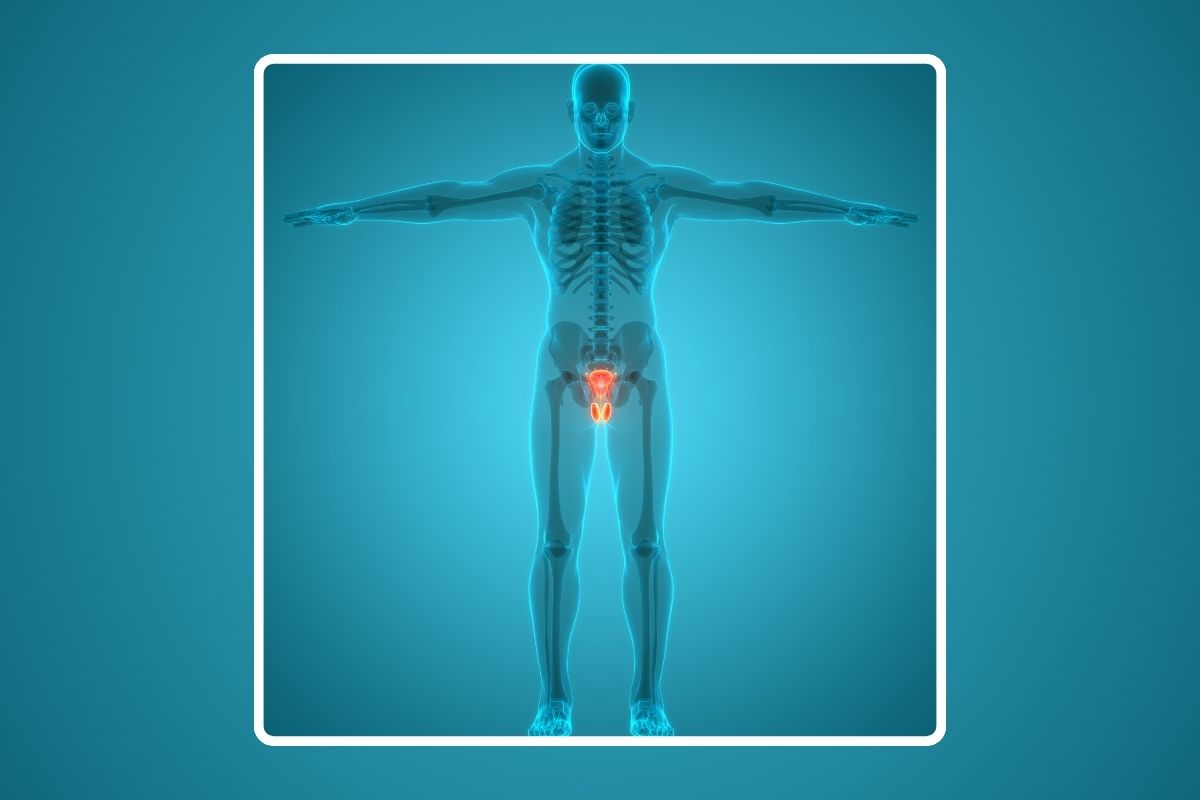
Understanding HIFU treatment for localized prostate cancer
HIFU treatment (High-Intensity Focused Ultrasound), a type of focal therapy, is an innovative approach for treating intermediate-risk localized prostate cancer that is well-visualized on MRI. Although widely used globally, mainly in private clinics or within strict research frameworks, it remains relatively uncommon in Quebec and Canada. It is not yet recognized as a standard treatment […]
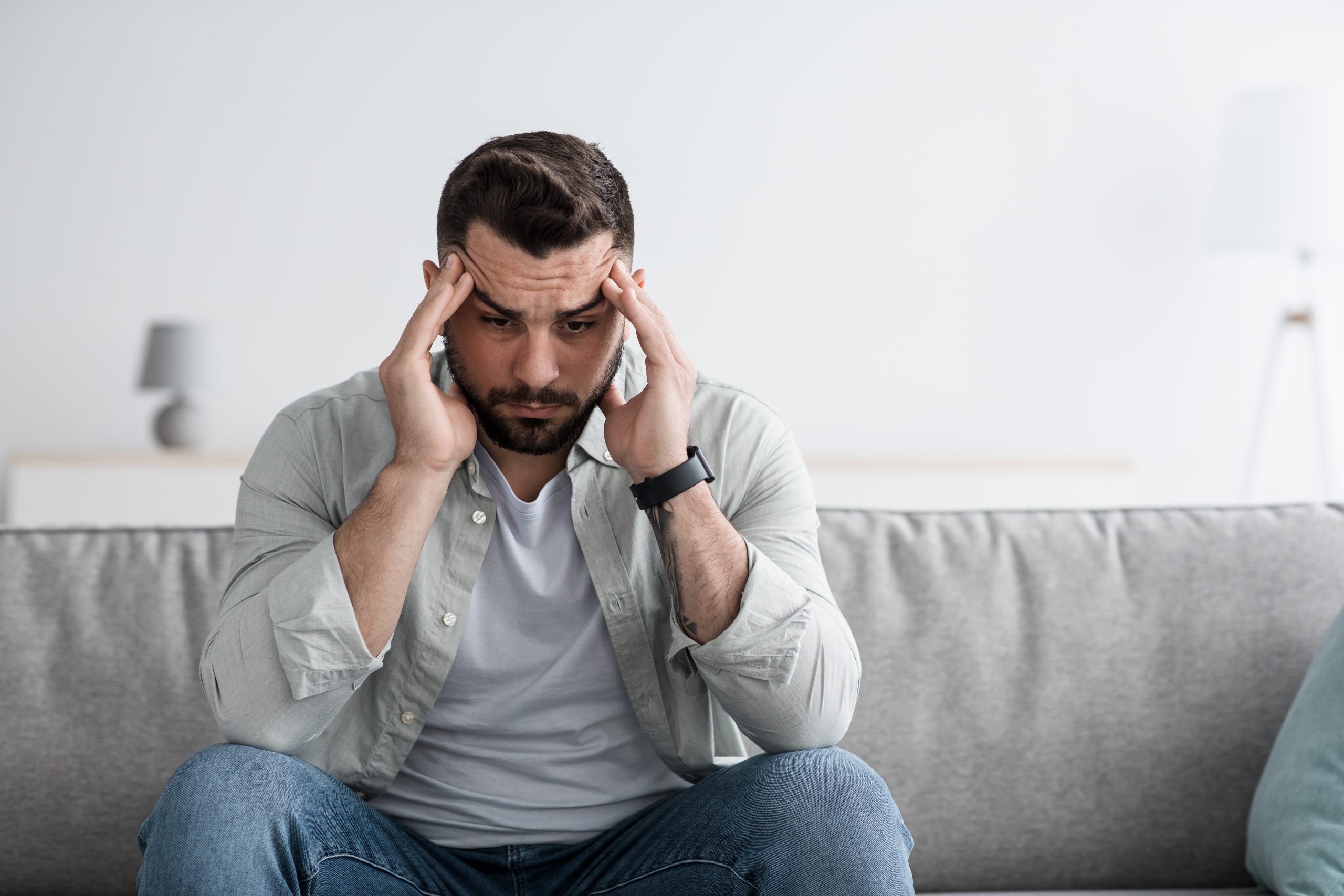
I have 4 treatment options; confused, you say?
If being diagnosed with prostate cancer is a massive blow for men, the treatment options can quickly become a headache…

Me a guinea pig?
Did you know that participating in a clinical trial advances medical science and improves the lot of patients for future generations?

Active surveillance in 5 points
As surprising as it may seem, your doctor may prefer to wait before starting treatment.

If I had been given the choice
If I had been given the choice, I would have opted for active surveillance! Rest assured that if your prostate cancer has little risk of progressing and you are a good candidate, the active surveillance option will be offered to you. Indeed, in many cases, it is not necessary to treat this type of cancer. […]

The importance of medical monitoring
Have you been or are currently being treated for prostate cancer? In such a case, it pays to know the facts to fully understand the importance of medical monitoring. After a diagnosis of cancer, you will normally be followed by your urologist for several years. Depending on your type of cancer and treatment, this follow-up […]
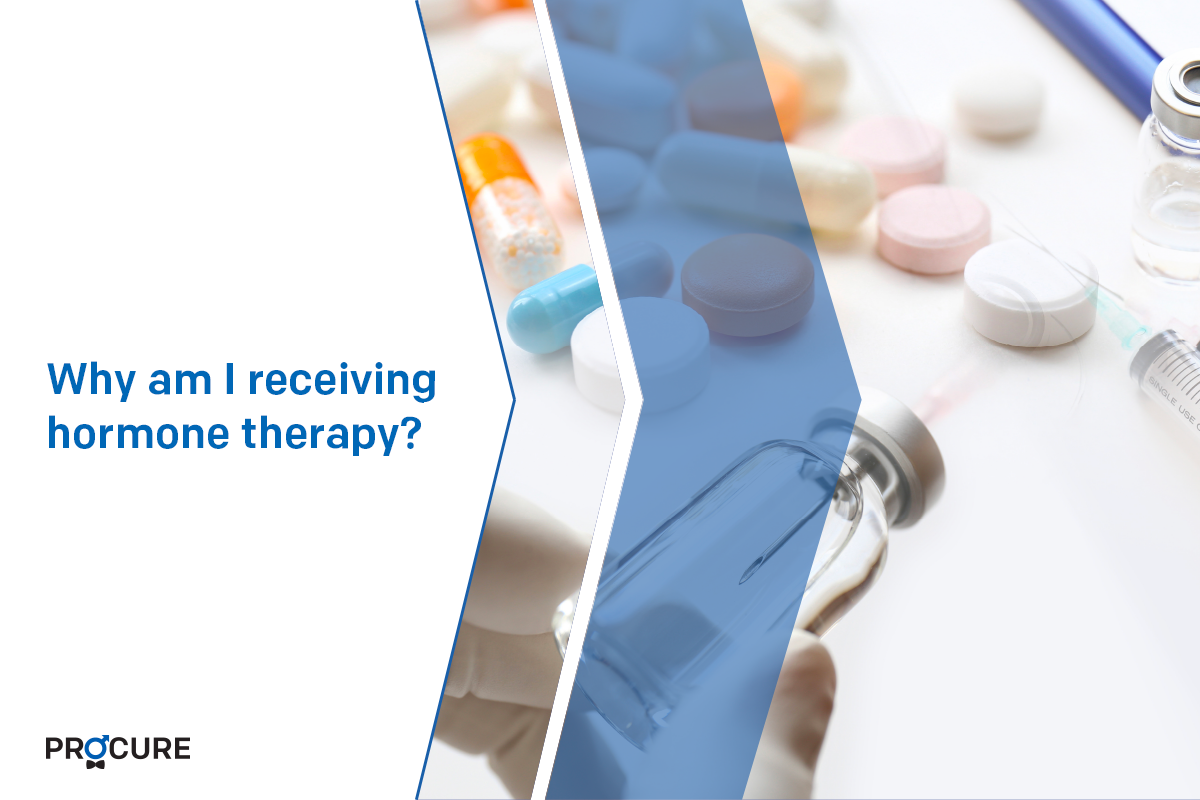
Why am I receiving hormone therapy?
Why am I receiving hormone therapy? Has your doctor recommended hormone therapy to treat your prostate cancer? Prostate cancer is a hormone-sensitive type of cancer, meaning its development is stimulated by male hormones: androgens and, more particularly, testosterone. Hormone therapy works by preventing your body from making or using these hormones, which stops your cancer from growing […]
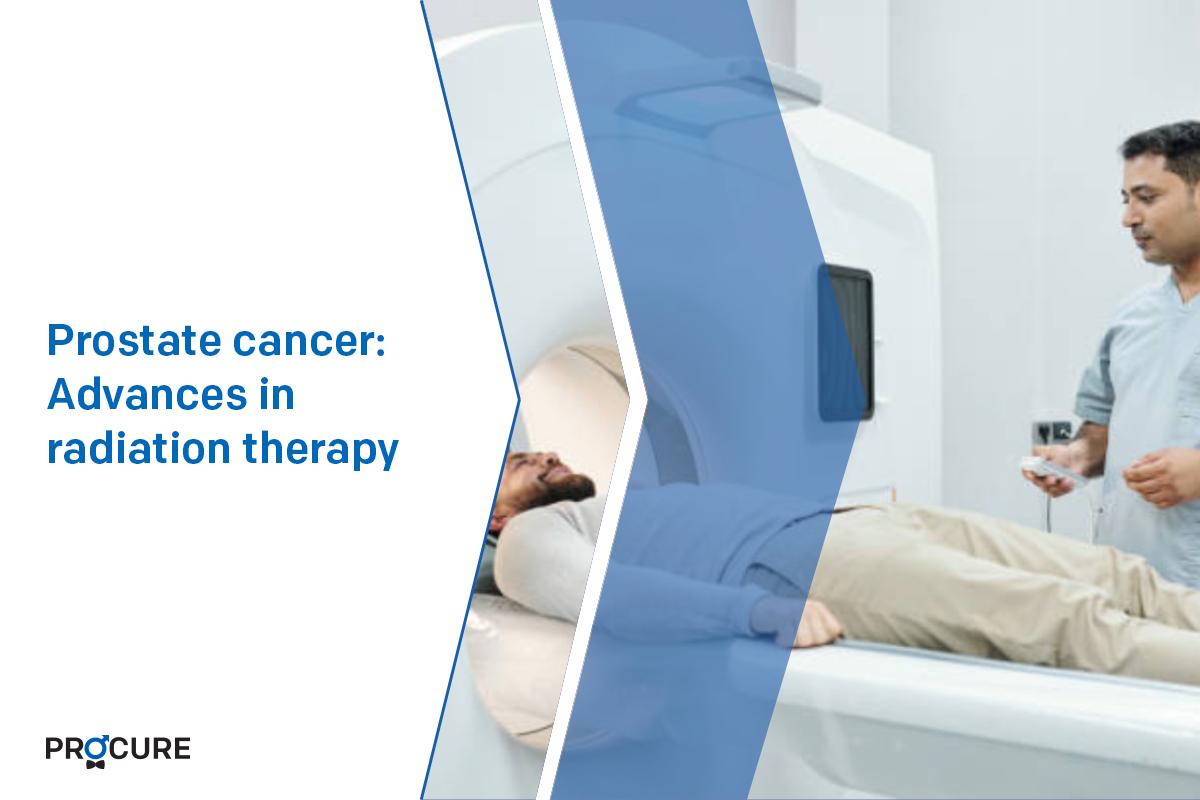
Prostate cancer: Advances in radiation therapy
If you have been diagnosed with prostate cancer, your doctor will consider many factors before recommending the best treatment. For many of you, this may mean external and/or internal radiation therapy. There are also advances in radiation therapy. These include more sensitive and specific functional imaging called PET PSMA, new and more effective hormone therapies, […]

Permanent brachytherapy: What exactly is it?
Permanent brachytherapy often called low dose rate brachytherapy, administers very small doses of radiation. They are emitted from small sources containing radioactive iodine, called “iodine 125”. These sources look like grains of rice. They stay in your prostate forever. However, their radioactivity decreases over time. After 6 months, 95% of the radioactivity has disappeared. The presence of these sources does not cause any long […]
Sources and references
Last medical and editorial review: April 2024. See our web page validation committee and our collaborators by clicking here.


